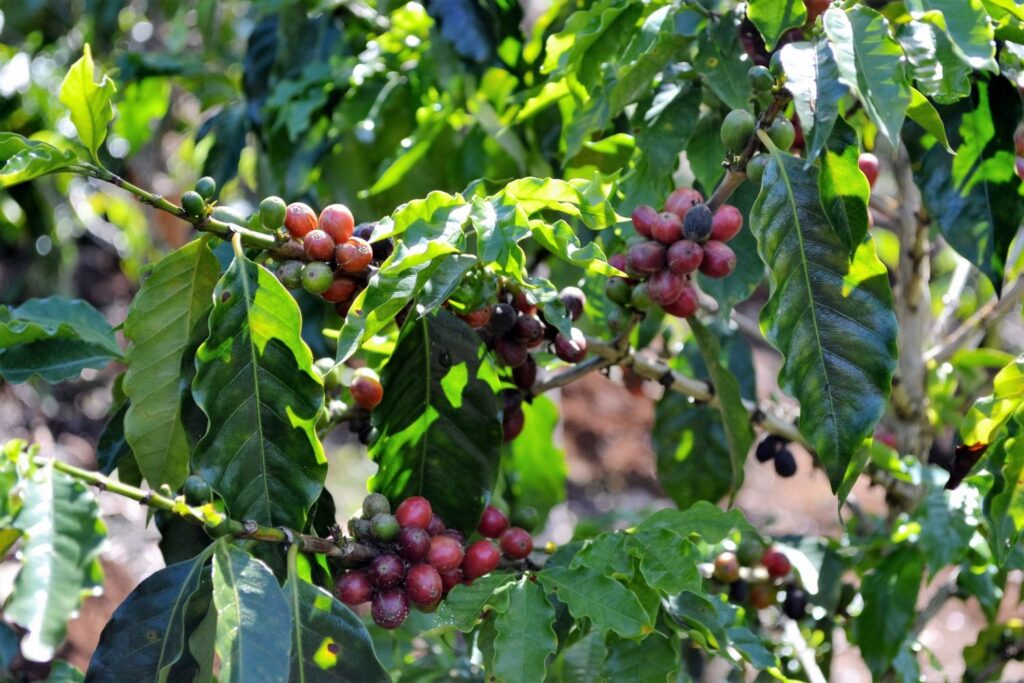This is a summary of a SIANI seminar about the impact of coffee certification on livelihoods and sustainable farming practices
Swedes drink a lot of coffee, and that coffee needs to be grown somewhere. Most of the coffee is grown by smallholder farmers with low-income in the regions with high biodiversity levels. This means that there are often social and environmental challenges associated with its production: Farmers get only a little fraction of the price for which coffee is sold, while still relying on it for their livelihoods, cultivating it as a monoculture in large quantities. It’s the high profile of the drink, and the challenges surrounding its mode of production that made coffee one of the earliest crops to be subjected to certification schemes.
Martin Persson, from Chalmers University of Technology, began the seminar with a review of available research and empirical evidence concerning the benefits and challenges with coffee certification. He explained how there are cases which show a positive impact, but overall the evidence is mixed. The problem is that we cannot really know for sure if the observed development improvements were due to participation in certification schemes or not. In many cases there are also no benchmarks to compare the status of a community development before the introduction of a certification scheme.
Persson also reviewed a number of challenges related to certification, such as how it does not address underlying drivers of environmental degradation: there are many certification schemes out there and many companies go for the lowest standard possible to save the costs. At the same time, while in theory, certification is meant to improve livelihoods of the farmers who have low-income and low to medium level of production; it is the high standard of certification that can slash the main beneficiaries. The fact that market demands are one of the driving forces also makes it complicated if demand or preferences change. Persson concluded by emphasizing certifications are only one part of a larger matrix of development schemes. There are limits to what it can achieve, especially in isolation, which makes the role of synergies between the supply chain initiatives and other policies and institutions essential.
Nigel Sizer, the President of Rainforest Alliance, emphasized the need for a systems approach to farming, with a focus on creating better productivity through training programmes and farmer field schools. According to Sizer, there is a renewed focus within Rainforest Alliance for recognizing high conservation values and climate smart agriculture in coffee farming, especially in light of the potentially negative impact of climate change on this commodity. Sizer agreed with a lot of what said by Persson, adding that certification has never been intended to solve all problems. Instead, he argued that what Rainforest Alliance can do is to focus on the farmers with major performance issues and continuously improve and simplify certification standards to make it easier for consumers to make the right choice.
The seminar ended with a panel discussion. Sofia Svahn, Löfbergs Lila, talked about how certification is important to their business and that they aim to make all their production certified in some form within ten years. While positive to certification in general, Louise Ungert, Stockholm Consumer Cooperative Society, argued that while it’s positive to have certifications based on environmental impact or decent working conditions, it can be confusing and potentially stressful for consumers to choose between a large range of brands. Instead, she would like to see a development towards fewer certification labels but which would include a multitude of dimensions. Jakob Lundberg, We Effect, remarked on how most of their partners are generally happy about certification but that its’ ability to benefit producers depends on their size. He illustrated it by an example of how illiterate, smallholder farmers struggle with the administrative work related to certification, while it is not so much of a burden to cooperatives. Monika Sihlén, National Agency for Public Procurement, explained how certification is an important tool for the public sector to verify standards, get information and follow up on it.
You can find out more about this seminar here and check out our blog about certification in Costa Rica here!
